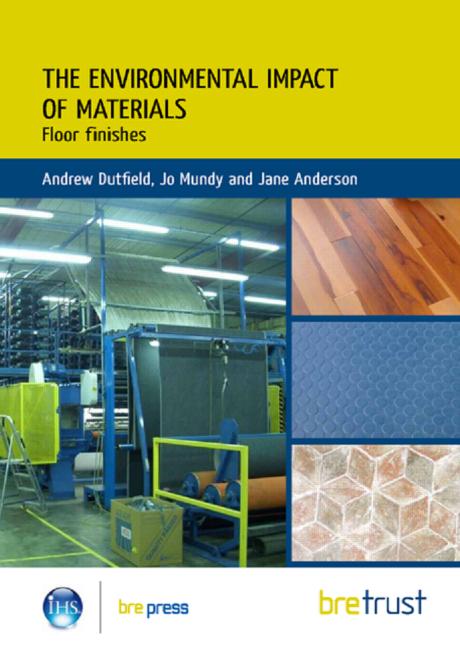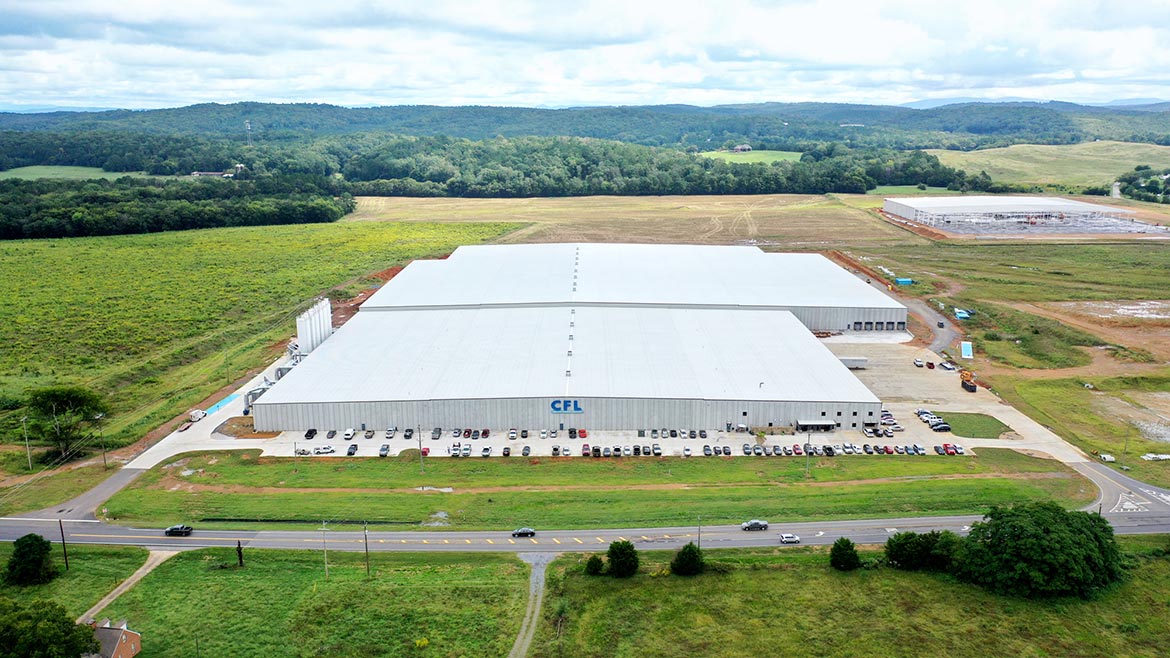CFL’s Investment in U.S. Manufacturing

CFL’s $100 million, 700,000-sq.-ft.plant, which opened in 2021, is producing two collections of waterproof SPC—Firmfit Intown and Firmfit Downtown—and elevating service levels for U.S. distributors.
Photos courtesy of CFL Flooring.

CFL’s plant in Calhoun, Georgia, is built on 63 acres.

The automated U.S. plant employs more than 300, and the company already has more plans to expand its digital printing capabilities.

CFL’s headquarters in JiaXing, China.

CFL President Thomas Baert; CEO Tom Van Poyer; Russ Cason, vice president and production director, Christi Sparks, human resources director.





On 63 green acres in Calhoun, Georgia, CFL Flooring continues to bet big on U.S. manufacturing. Its $100 million, 700,000-sq.-ft.plant, which opened in 2021, is producing two collections of waterproof SPC—Firmfit Intown and Firmfit Downtown—and elevating service levels for U.S. distributors.
“With the now well-established tariff and freight issues, it helps eliminate obstacles for us and our customers,” said Barron Firth, president CFL North America. “It also helps us be more flexible to respond to market changes whether it is related to color or product development.”
The automated U.S. plant employs more than 300, and the company already has more plans to expand its digital printing capabilities.
“There are so many more specialized experienced workers here to offer a more efficient quality-controlled product line,” Firth said. “Another benefit is that customers can come to the U.S. plant for product line reviews and plant tours rather than traveling to Asia.”
The last few years have been a volatile business environment: a global pandemic, logistics and supply chain issues, tariffs and inflation. “Companies are trying to find ways to protect their customers in globally volatile environment,” said CFL President Thomas Baert.
In response to these unpredictable times, more rigid core factories have come online in the U.S., and Baert said CFL’s Georgia investment reduces prices fluctuations and working capital requirements while increasing service through reduced delivery times.
“The SPC market and the rigid core market—WPC, SBC, NGO-type of products—are in a mass growth mode worldwide,” Baert said. “In the United States, we anticipate it to grow 20% to 25%.”
CFL offers four brands of SPC flooring to the United States: Firmfit, Novocore Q, Atroguard and Tenacity.
The company established its first plants outside China in 2018— in Taiwan and Vietnam—and started shipping from those locations in 2019. Yet, much of the category’s innovation continues to come out of Asia, including China, Korea, Vietnam, Taiwan, Thailand and Cambodia. “Our Asian factories in Vietnam, Taiwan and China all have their own strengths and allow us to act swiftly to leverage one or the other when situations change,” Baert added.
New technologies, like digital printing, will play a crucial role in the future of new material flooring as it enables unlimited design and embossing-in-register flexibility and can be applied to a wide range of materials. This facilitates faster response times to market demands and trends while reducing material waste.
In January, the company announced it had attracted an international private equity firm, which came on board as a minority shareholder, to bring working capital to aid further investments. In addition to the design and production related advantages, these investments will also help CFL become more sustainable, the company said. CFL sources almost all its raw materials locally, allowing for greater transparency in the supply chain and reducing our footprint, Firth said. In fact, more than 90% of a Firmfit Intown and Downtown SPC planks are made from raw materials sourced in the United States.
Digital printing helps to eliminate certain elements such as films or wear layers, reducing our carbon footprint, reducing the total amount of PVC used, as well as reducing the impact of supply chain strains on our production.
By sourcing locally, CFL’s customers will help to contribute to reducing carbon footprints and contribute to LEED and WELL points for green building projects.
“At end of the day, it's not about us — it’s about our customers,” Baert said. “We have an extremely loyal customer base, which is growing very rapidly. We need to be able to manage this growth and the only way we can do this is to make massive investments in factories around the world and do it now.”
Looking for a reprint of this article?
From high-res PDFs to custom plaques, order your copy today!













